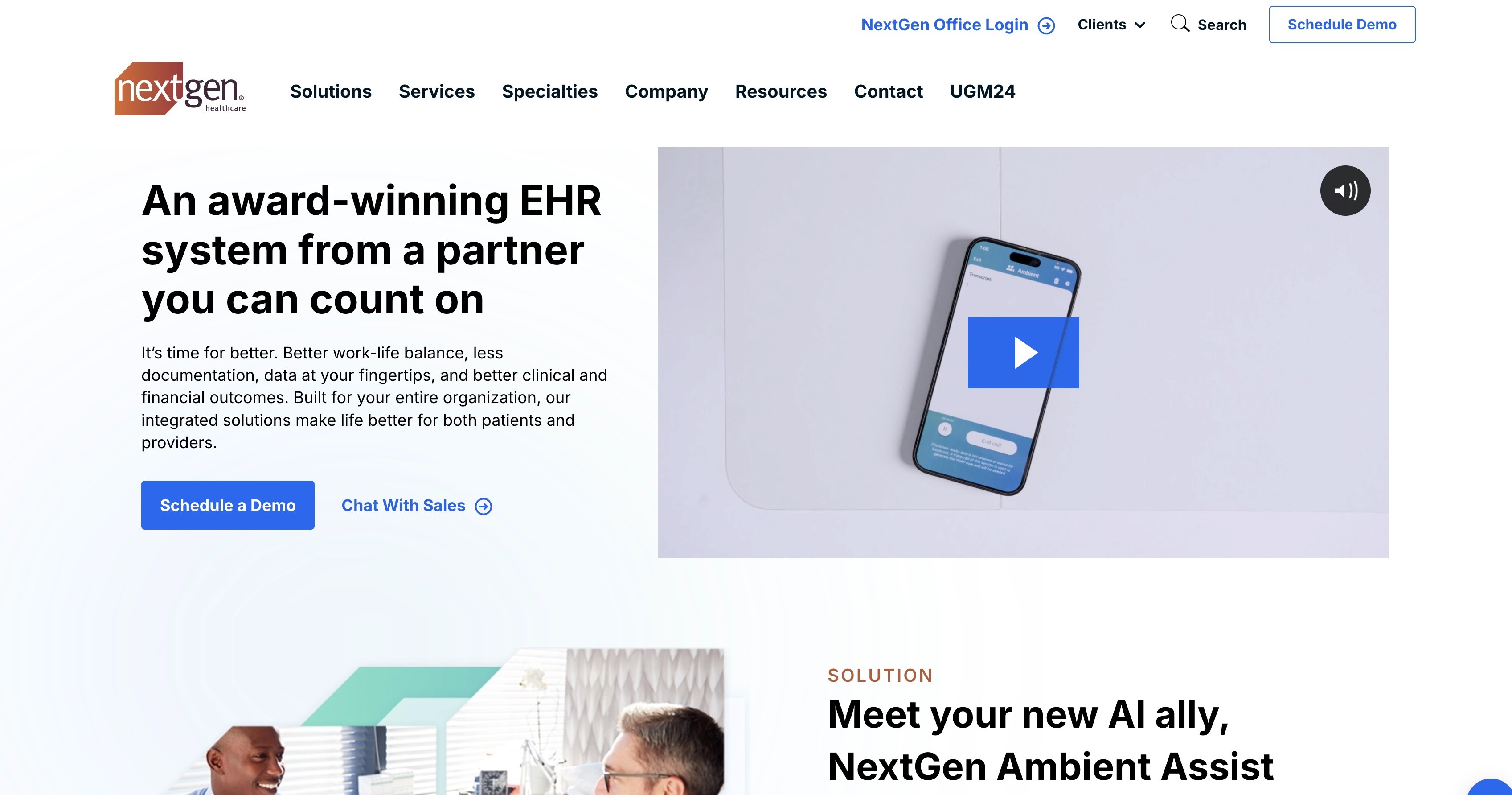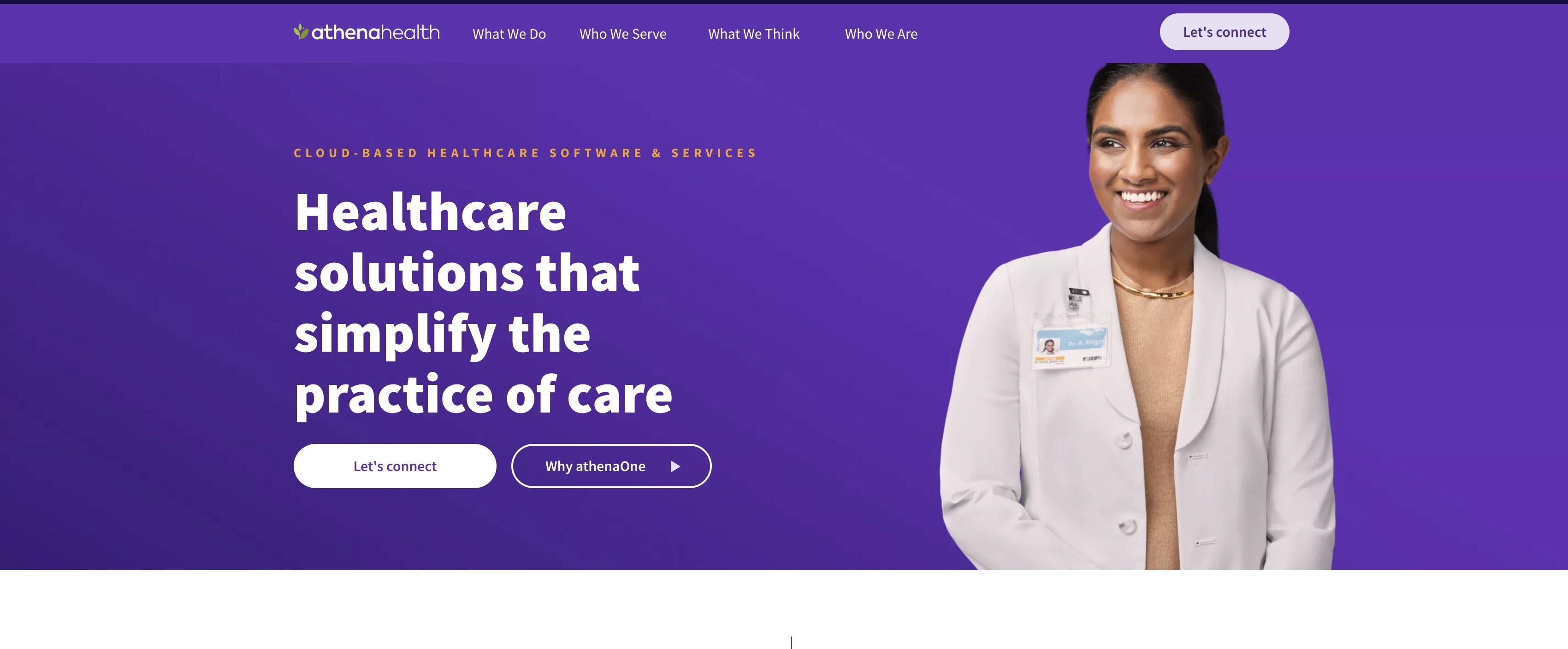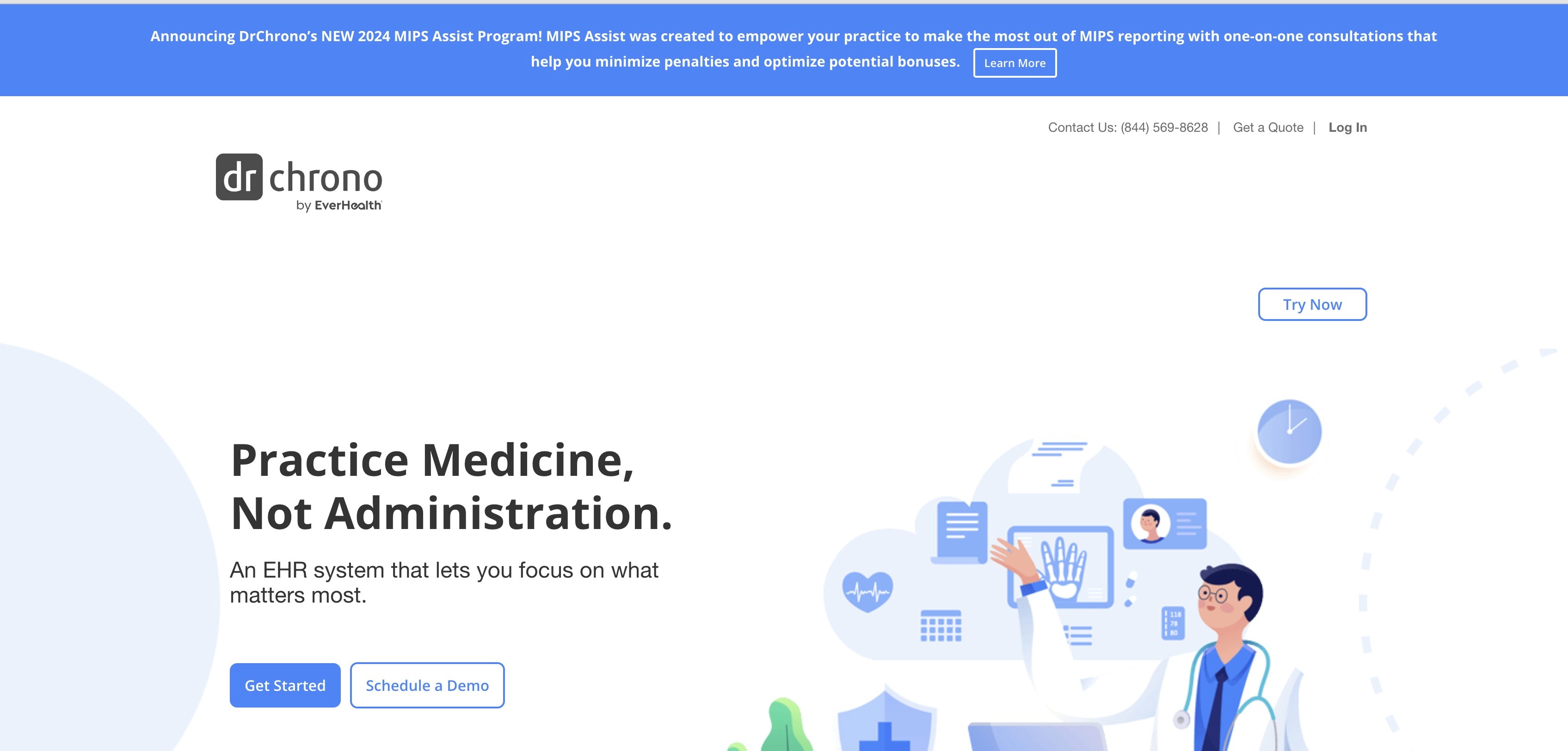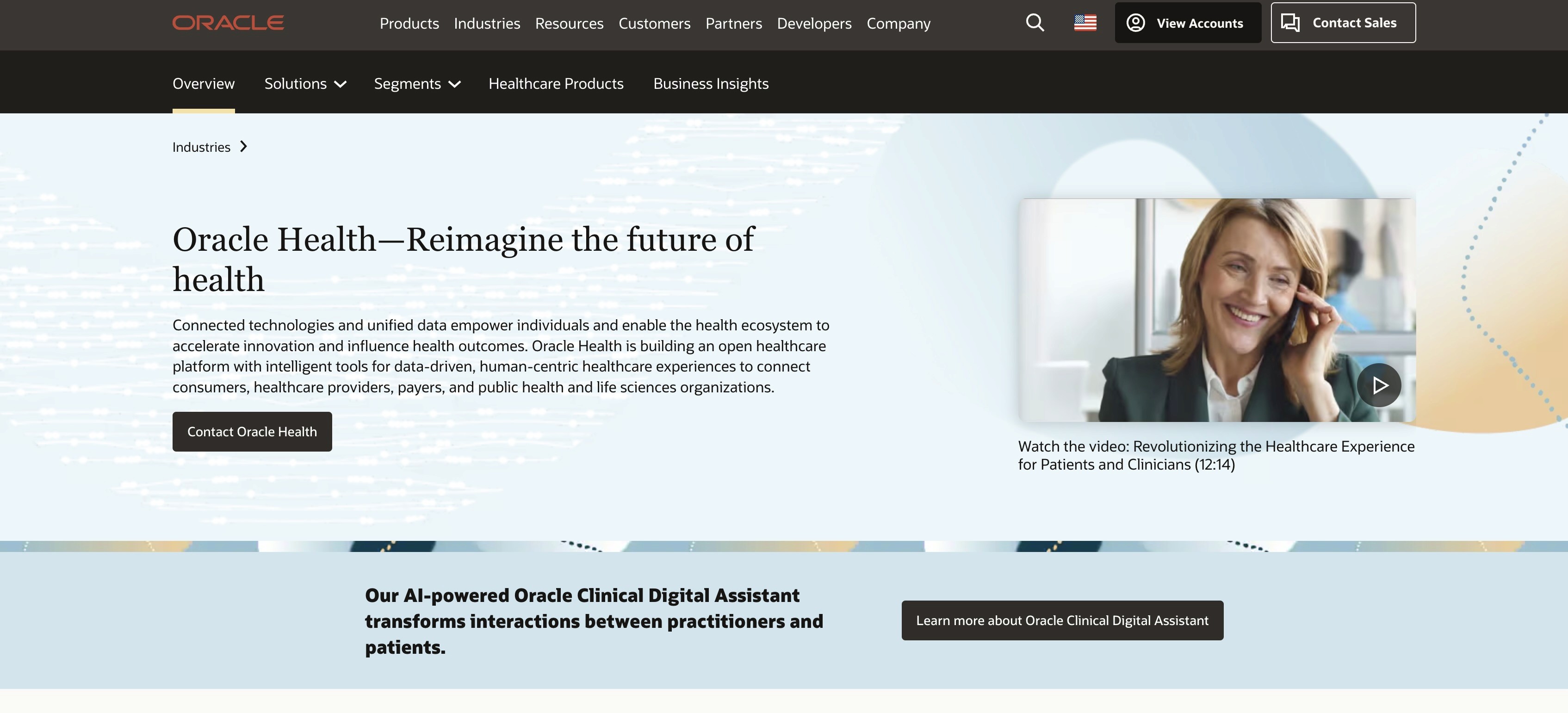Shopping for new electronic health record (EHR) software can feel like navigating a labyrinth. It’s overwhelming enough for a medical practice to juggle patient care with administrative tasks, let alone sift through countless software options. You’re not alone in seeking out eClinicalWorks alternatives.
While eClinicalWorks has a considerable presence in the healthcare software market, you might be on this page because you are looking for something different. This exploration into eClinicalWorks alternatives will equip you with the knowledge you need to make an informed decision for your practice.
Why Consider eClinicalWorks Alternatives?
Every medical practice has unique needs and workflows. Sometimes a one-size-fits-all approach doesn't cut it. While eClinicalWorks is a robust platform, it may not perfectly align with your specific requirements or those of your staff.
This is where exploring eClinicalWorks alternatives becomes not just an option, but an opportunity. Factors like budget constraints, specific specialty needs, practice size, or a desire for more intuitive user experiences often motivate practices to explore alternative EHR solutions.
Let's dive deeper into the advantages and potential drawbacks of choosing an alternative to eClinicalWorks.
Potential Advantages of Choosing eClinicalWorks Alternatives:
Tailored Solutions: Some alternative EHRs cater to particular medical specialties. Whether you manage a mental health practice, a physical therapy clinic, or another specialized area, a more focused EHR can streamline your documentation and workflows more effectively.
Budget Flexibility: eClinicalWorks alternatives come in a range of pricing structures. You can potentially find more budget-friendly options with features that perfectly suit your practice size and financial needs.
User Experience: Your staff’s comfort with the software is vital for efficiency and adoption. Some alternatives might prioritize user interface and intuitive design for a smoother experience.
Integration Capabilities: Integration with other healthcare systems like labs, imaging centers, and pharmacies is critical for seamless data exchange. Alternatives may offer more robust or specific integration options.
Considering the Drawbacks:
Switching EHR systems always presents potential challenges. However, careful planning can mitigate these hurdles and pave the way for a smooth transition. Here are key points to bear in mind:
Data Migration: Transitioning patient records and data to a new system requires careful planning and potential costs. Look for alternatives that provide robust data migration support.
Training and Adoption: Switching software often entails a learning curve for staff. Alternatives should offer comprehensive training materials and resources.
Potential Disruptions: Be ready for temporary adjustments to workflows as your practice acclimates to the new system. Schedule the transition during a less busy period if possible.
Exploring the Top eClinicalWorks Alternatives in 2025
Ready to see what else is out there? Let’s explore some leading EHR systems that are giving eClinicalWorks a run for its money in 2025. You can click on the links provided for an in-depth look at each platform:
1. NextGen Healthcare EHR

Best For: Small to mid-size practices
NextGen Healthcare is an example of a leading force in healthcare software. NextGen Healthcare focuses on better and more complete ambulatory healthcare transformation, according to its website.
Pro: Strong interoperability capabilities with other healthcare systems.
Con: Some users find the interface less intuitive compared to newer platforms.
2. Practice Fusion EHR

Best For: Small practices looking for a budget-friendly solution
Practice Fusion is a cloud-based EHR system that offers a range of features including charting, e-prescribing, patient scheduling, and lab integrations. It's known for its user-friendly interface and affordability, making it particularly suitable for small to medium-sized independent practices and solo practitioners.
Pro: Free basic version available, making it accessible for budget-conscious practices.
Con: Limited customization options compared to some more robust EHR systems.
3. AthenaHealth

Best For: Medium to large practices/organizations
Athenahealth is a cloud-based electronic health record (EHR) and practice management system. It offers comprehensive features including clinical documentation, billing, patient engagement, and population health management tools.
Pro: Excellent revenue cycle management capabilities.
Con: Can be more expensive than some competitors.
4. AdvancedMD EHR

Best For: Practices seeking seamless integration and automation
AdvancedMD EHR is a comprehensive cloud-based healthcare software suite that combines electronic health records, practice management, and medical billing functionalities. It offers a wide range of features including customizable templates, e-prescribing, patient portal, telemedicine, and robust reporting tools.
Pro: Highly integrated system with strong scheduling and billing capabilities.
Con: Pricing can be higher compared to some competitors, especially for smaller practices.
5. DrChrono EHR

Best For: Practices seeking scalability and customizable templates
DrChrono is an all-in-one EHR platform that caters to various specialties. It provides customizable medical forms, e-prescribing, medical billing, and a patient portal, all accessible via web and mobile devices.
Pro: Highly customizable and user-friendly interface.
Con: Some users report occasional system slowdowns during peak hours.
6. Oracle Health (formerly Cerner)

Best For: Large hospitals and healthcare systems
Oracle Health offers a comprehensive suite of healthcare IT solutions, including EHR, revenue cycle management, and population health management tools. It caters to various healthcare settings, from small practices to large health systems, with a focus on interoperability and data-driven insights.
Pro: Robust clinical decision support tools.
Con: Implementation can be complex and time-consuming.
7. Meditech Expanse

Best For: Various healthcare organizations
Meditech Expanse is a comprehensive, web-based EHR system designed for hospitals and health systems. It offers a wide range of integrated modules including clinical, financial, and operational tools. The platform provides mobile functionality, voice recognition capabilities, and advanced analytics to support patient care across various healthcare settings.
Pro: Excellent interoperability features, facilitating smooth data exchange across healthcare networks.
Con: Implementation can be complex and may require significant resources and time.
8. Altera Digital Health EHR (formerly known as Paragon)

Best For: Large hospitals and healthcare systems
Altera Digital Health EHR, formerly known as Paragon, is a comprehensive healthcare information system designed for community hospitals and health systems. It offers integrated clinical, financial, and operational modules, including EHR, revenue cycle management, and patient engagement tools. The system emphasizes interoperability and provides customizable workflows to meet the needs of different healthcare settings.
Pro: Strong focus on community hospital needs with tailored solutions for this market segment.
Con: Some users report that the user interface could be more intuitive and modern.
Making the Switch from eClinicalWorks
Transitioning from one EHR to another is a multi-faceted process. Meticulous preparation and careful consideration of potential challenges are vital for a seamless transition.
Start by backing up all your existing data. Ensure compatibility with your new vendor and select a time for the switch when disruption to your practice can be minimized.
Additional Considerations:
Staff Training: Adequately training your team on the new EHR system is key. Encourage staff to fully engage with the new platform to minimize disruption.
Customization: Configure the new EHR system to align with your workflows, specialties, and reporting needs. Don’t be afraid to ask for help in setting this up or to maximize existing features.
Data Validation: Thoroughly review and validate the migrated data in the new system. Look for discrepancies in patient records, billing codes, or other vital information.
Ongoing Support: Stay connected with the customer support of your chosen alternative EHR for troubleshooting and continued learning about features.
Choosing the right EHR software, whether you stay with eClinicalWorks or switch to an alternative, significantly impacts the way you manage your practice, engage with patients, and handle critical data. The journey of choosing the right EHR is unique to each practice.
Embrace exploration, take advantage of demos, leverage those free trials, and ensure that the solution you ultimately choose empowers your practice to thrive in today’s evolving healthcare landscape.
Editor's Note: While it may not be an EHR tool, Magical is a tool that helps healthcare admin teams stay productive by eliminating repetitive tasks. Tasks like data entry and moving patient info between systems safely and securely. You can create keyboard shortcuts for your most used phrases and codes and store them in Magical so you can call them up with one click.
FAQs About eClinicalWorks Alternatives
Who are eClinicalWorks competitors?
Major eClinicalWorks competitors include Cerner, Allscripts, Athenahealth, Meditech, Greenway Health, and NextGen, among others. These competitors offer a wide range of EHR and practice management solutions.
Is eClinicalWorks similar to Epic?
While both eClinicalWorks and Epic are prominent EHR systems, they cater to different segments of the healthcare industry. Epic generally targets larger hospital systems and offers a comprehensive suite of healthcare IT solutions. eClinicalWorks focuses more on independent physician practices and smaller healthcare organizations.
What type of EHR is eClinicalWorks?
eClinicalWorks is a cloud-based electronic health records (EHR) and practice management software that caters to the needs of office-based physicians in all specialties. It offers a variety of features such as charting, billing, patient scheduling, and patient portal.
How many providers are using eClinicalWorks?
eClinicalWorks states they are a leader in healthcare IT, serving over 150,000 physicians and 850,000 healthcare professionals nationwide, with over 13,000 medical clinics using eClinicalWorks. eClinicalWorks is known for its integrated scheduling and patient engagement tools. Users on G2 have given eClinicalWorks an overall rating of 3.6 out of 5.
Which Alternative is Right For Your Practice?
Transitioning from eClinicalWorks to an alternative doesn't have to be daunting. By considering your specific needs, researching diligently, and leaning on the expertise of EHR vendors and implementation support, you can make an educated decision that ultimately benefits your practice and improves patient care.
Remember, there are numerous eClinicalWorks alternatives out there. Don't settle for something that doesn't align perfectly with the vision and workflow of your practice. When you find the perfect alternative, pair it with Magical.
Magical is used (and loved) at more than 50,000 companies like United Healthcare, WebPT, and Zoomcare to save 7 hours a week (on average) on their repetitive tasks. Try it for your team today!
